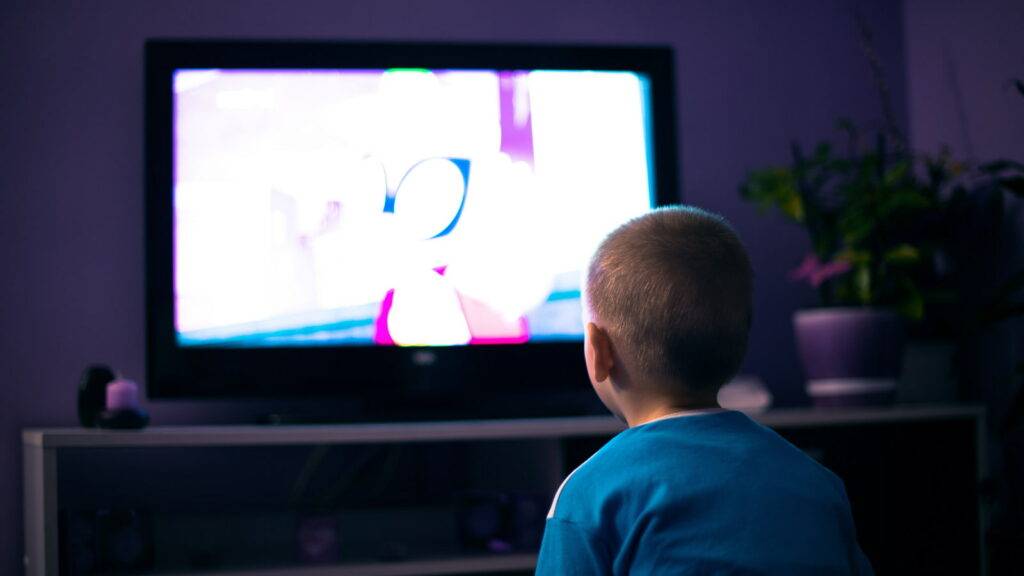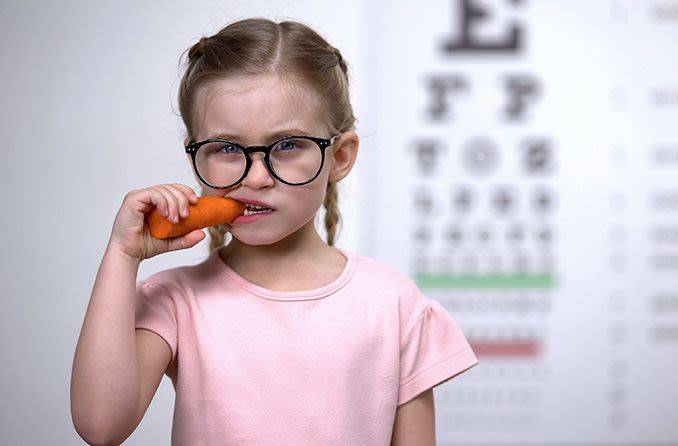Our eyes are a vital organ that allow us to see and experience the world around us. Unfortunately, there are many common eye myths that can lead to misinformation and potentially harm our eye health. In this article, we will debunk five common eye myths and provide you with the facts to help you take better care of your eyes.

We've all heard this myth from our parents when we were kids. The belief is that sitting too close to the TV can cause eyestrain, and even worse, damage our eyes. However, there is no scientific evidence to support this claim. Sitting close to the TV may cause eyestrain, but it won't cause permanent damage to your eyes. To reduce eye strain when watching TV, it's recommended to sit at least six feet away from the screen, and to take regular breaks.

Another common myth is that reading in dim light can harm our eyes. However, this is not true either. While reading in low light can cause eye strain and fatigue, it won't cause permanent damage to your eyes. To reduce eye strain, it's recommended to read in a well-lit room or to use a reading lamp.

We've all heard that eating carrots can improve our vision, but is this true? While carrots are a good source of vitamin A, which is essential for eye health, they won't improve our vision beyond normal levels. In fact, there are many other foods that are better for eye health, such as leafy green vegetables, salmon, and citrus fruits. These foods are rich in antioxidants and other nutrients that can protect our eyes from damage and reduce the risk of eye diseases.

Many people believe that they only need to see an eye doctor if they have poor vision. However, this is not true. Regular eye Tests are important to detect and treat eye problems before they become serious. Eye exams can also detect other health problems, such as diabetes and high blood pressure. Adults should have a comprehensive eye exam every one to two years, while children should have their eyes checked regularly as they grow and develop.

Finally, there is a common belief that wearing glasses or contacts can make our vision worse. However, this is not true either. Wearing glasses or contacts as prescribed can improve our vision and prevent eye strain. In fact, not wearing corrective lenses when needed can lead to headaches, eyestrain, and other vision problems. It's important to follow the advice of your eye doctor and wear corrective lenses as prescribed to ensure optimal eye health.
There are many common eye myths that can lead to misinformation and potentially harm our eye health. By understanding the facts, we can take better care of our eyes and prevent eye problems before they become serious. Remember to get regular eye exams, eat a healthy diet, and take breaks when working on a computer or watching TV. Your eyes will thank you for it!

Eric Johnson is a Kerala-based eye wear expert and entrepreneur. He is one of the directors of Ejones Opticals, a company dedicated to providing the highest quality eye wear products at the most affordable prices. Eric has been in the eye wear business for over 10 years, and has a deep understanding of the industry. He is passionate about helping people look and feel their best through the right eye wear. Eric is committed to using his expertise to create stylish and functional eye wear that is tailored to each individual's needs.
As we age, our eyes undergo several changes that can affect our vision. One of these changes is presbyopia, a common condition that affects people over the age of 40. Understanding what presbyopia is and how it affects your vision is important to maintaining good eye health and quality of life.
Presbyopia is a condition that occurs when the natural lens of the eye becomes less flexible and loses its ability to focus on objects up close. This happens because of age-related changes in the eye, which lead to a gradual loss of elasticity in the lens.
The Prevalence of Presbyopia Presbyopia is a natural part of the aging process, and as such, it affects a large percentage of the population. According to the World Health Organization (WHO), presbyopia affects nearly 1.8 billion people worldwide, and this number is expected to increase to 2.1 billion by 2020.
Age-related changes in the eye are the primary cause of presbyopia. Other factors that may contribute to the development of presbyopia include environmental factors such as prolonged exposure to UV rays and genetics.
The most common symptoms of presbyopia include blurred vision, eye strain, and difficulty reading small print. People with presbyopia may also experience headaches, fatigue, and eye fatigue.
Presbyopia is usually diagnosed during a comprehensive eye exam. The exam may include a visual acuity test, refraction test, and an eye health evaluation.
There are several treatment options available for presbyopia, including eyeglasses, contact lenses, surgery, and lifestyle changes. Eyeglasses and contact lenses are the most common treatment options and can help correct the refractive error caused by presbyopia.
Surgery is another option for treating presbyopia, with options such as laser surgery and intraocular lens implants. Lifestyle changes such as eating a healthy diet, maintaining regular eye exams, and protecting your eyes from the sun can also help prevent or manage presbyopia.
While it is not possible to prevent presbyopia entirely, there are steps that people can take to reduce their risk of developing the condition. These include maintaining a healthy diet, getting regular eye exams, and wearing proper eye protection when exposed to UV rays.
Presbyopia is a common condition that affects many people as they age. Understanding the causes and symptoms of presbyopia is essential for maintaining good eye health and quality of life. If you are experiencing symptoms of presbyopia, seek treatment from an eye care professional to help manage the condition and maintain good vision.

Eric Johnson is a Kerala-based eye wear expert and entrepreneur. He is one of the directors of Ejones Opticals, a company dedicated to providing the highest quality eye wear products at the most affordable prices. Eric has been in the eye wear business for over 10 years, and has a deep understanding of the industry. He is passionate about helping people look and feel their best through the right eye wear. Eric is committed to using his expertise to create stylish and functional eye wear that is tailored to each individual's needs.
Address: Unity Complex, Payyanur.
Tele: +91 4985205553
Mobile: +91 8921835063
Address: KSRTC Complex, Payyanur
Tele: 04985203554
Mobile: +91 8848195859